Encounters Across Time
Wholeness, strength, and social connection
Serena Bian’s work invites us to refine our values in order to move towards cultures of wholeness, strength, and social connection. This essay offers a beautiful and embodied exploration of human questions of belonging — belonging to oneself, to one’s family, and among a broader community. Alongside the beauty, it also speaks to the pain of separation and the struggle of intergenerational repair, asking us not to look away from the hard parts, but to bring light to them as part of the healing process.
Encounters Across Time: Dancing With My Ancestors, Redwood Trees, and My Heart
Created by Serena Bian
I. Ancestor Reverence
Watching the moon
At midnight,
Solitary, mid-sky,
I knew myself completely,
No part left out.
– Izumi Shikibu –
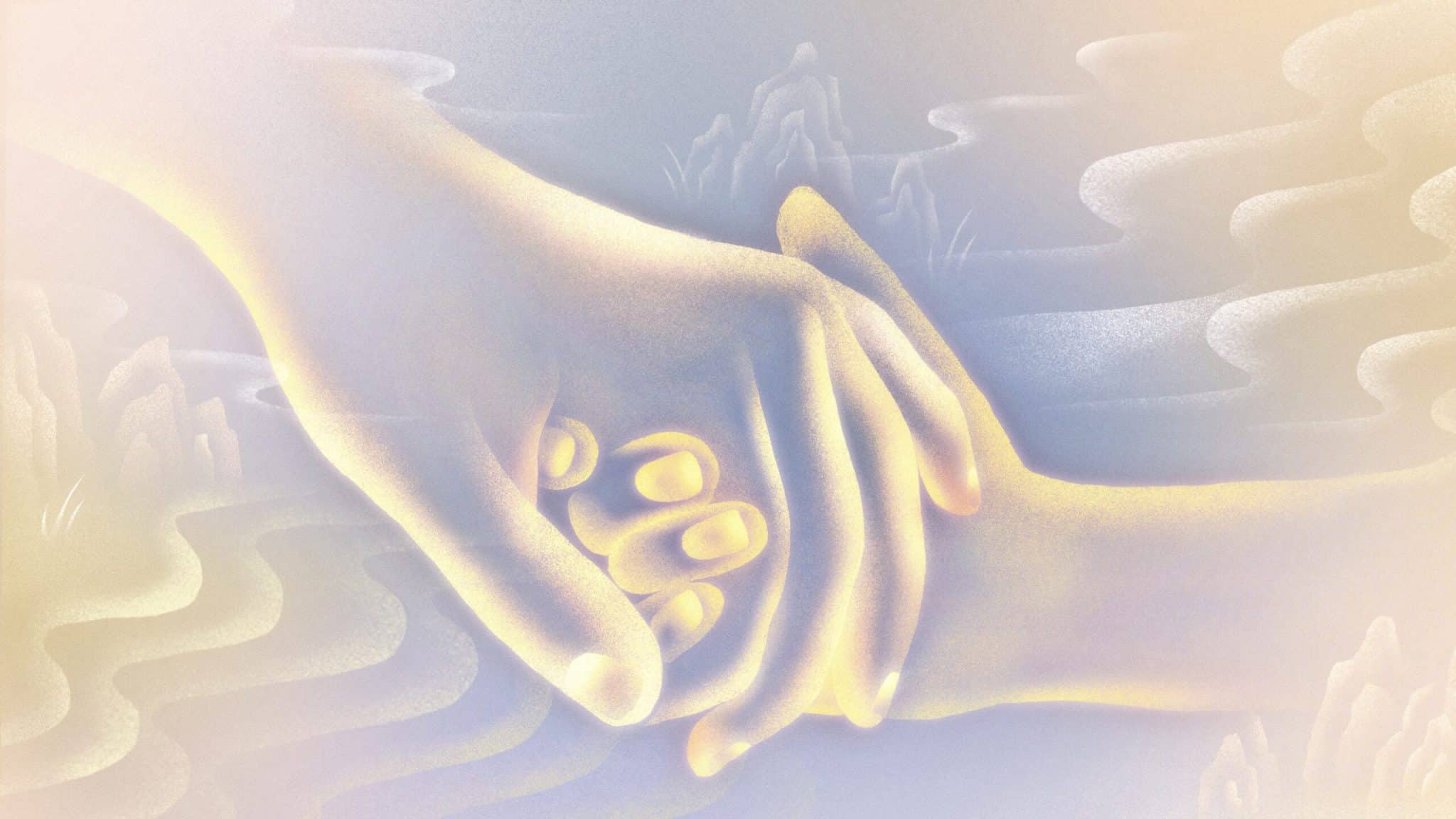
The whole night sky is contained within the relationship between my father and I. We are a constellation of stars shimmering in the celestial laws of nature — some years, clashing in meteoric anger, and in others, resting in the expansive blankness of longing for the childhood intimacy we once shared. We are our own Anthropocene — father and daughter at the brink of collapse of our own making.
I’m still piecing together my inheritance, catching delicate threads of memories from this generation before mine.
 |
Before my grandfather’s memory evaded him, he spent hours tucked away in his bedroom, practicing Qing Dynasty calligraphy with a steady brushstroke in unified concentration. An isolated man who was quick to anger, he and my grandmother were forced to spin a web of fear and emotional neglect for their family during China’s Cultural Revolution. When my father was six months old, barely weaned, he was separated from his parents, who were forced from their university to work the lands of rural China.
My father writes me short essays. I am his first-born, but in his eyes, a vulnerable young woman in an unforgiving world. Each essay contains a commandment, not unlike those that God thundered down to Moses as he led the Israelites out of Egypt, with sermons on how I should live. I feel in these rigid essays the aliveness of intergenerational trauma, persistent in its ripples of fear from seismic ruptures of the past.
His commandments break America into good and bad. They are meditations on the perils of the “other,” lessons learned from newsworthy crime, how to defend oneself from an intruder, and how late one should be out at night. Safety and security are guiding themes.
Growing up seethed in the Cultural Revolution, caught in the story of a country and leader failing to reinvent itself, leaving millions of Chinese kin uprooted and disenfranchised, how could his perspective take on anything else? When a web is gutted, threads pulled clean, the winds of sorrow blow without constraint.
Yet, these commandments were archived, and the archives were slowly forgotten.
Dad, I wanted to be a co-author. You left me only spaces between your words to annotate. My voice has no place within these texts.
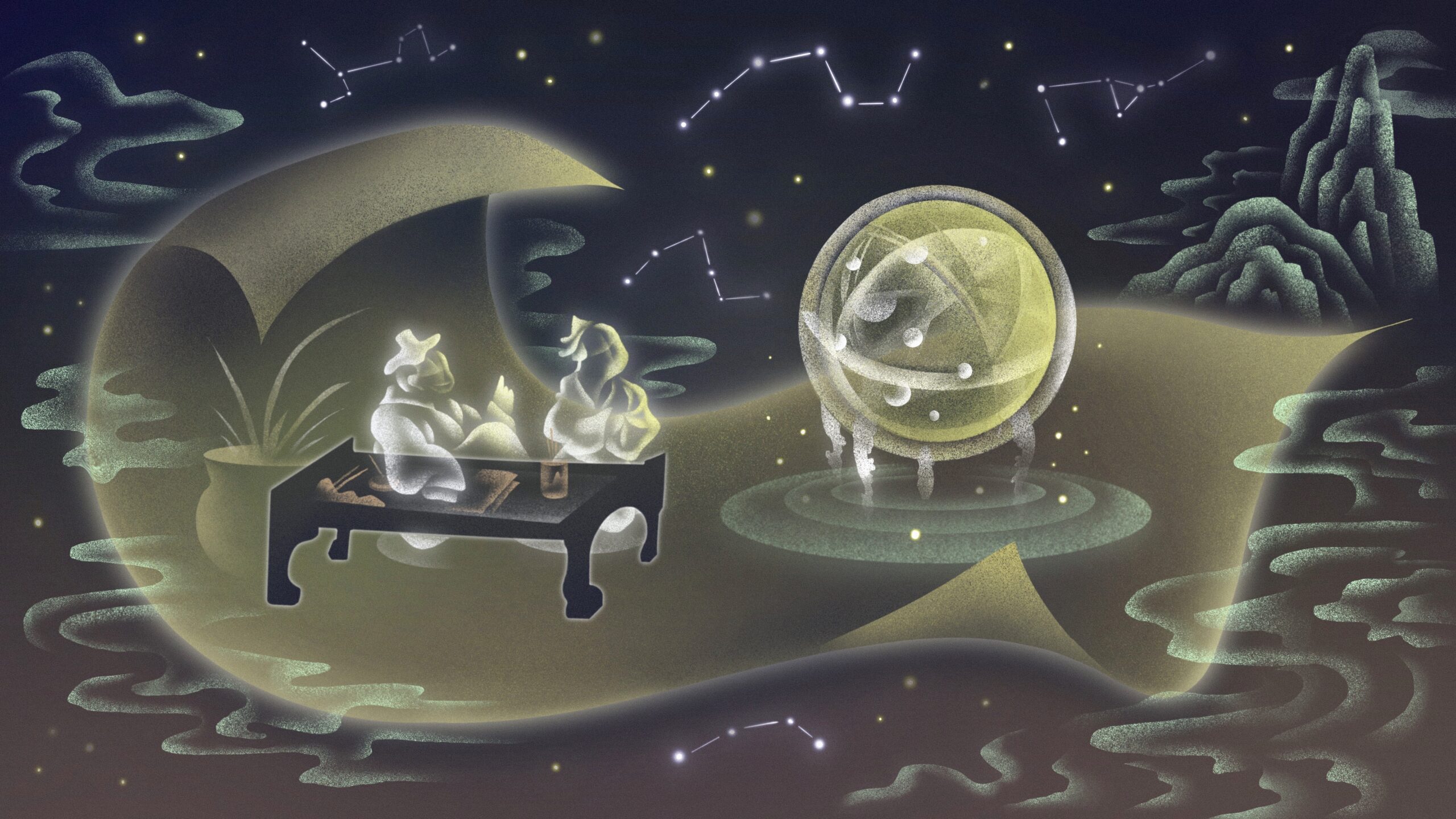
Sometimes, I feel sucked into a black hole of familial loneliness – trapped in an inherited story, blind to the powerful conditions that caused it.
But my knowing ancestors have already studied the stars, planets, and galaxies. Their old eyes know the map, written in the language of ancestral prayer. Within their cosmology, my life story unfolds.
I’ve begun to take refuge in them, particularly Lao-Tai-Tai, great-grandma:
Lao Tai Tai, what happened in our family? I feel so lonely, so lost. I don’t know if I’ll ever feel heard and understood by Dad. Help me learn how to be in wise relationship with my inheritance.
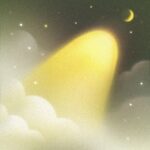 |
May we each find the strength to bring to light all that is darkened in our lineages. May the moonlight wash our ancestral clothing anew. May our questions of inheritance be healing for the ones who came before, as well as for those yet to come.
And may I find the gentle perseverance to continue evolving in constellation with my father, near the bright, ever-returning moon.
II. Vicissitudes
“When I was 25 years old and assumed I was alive, I was drifting in a sort of death and stayed locked in invisible walls. But I didn’t know this, and I couldn’t know. Very often, however, I was very unhappy.”
– Silja Walters –
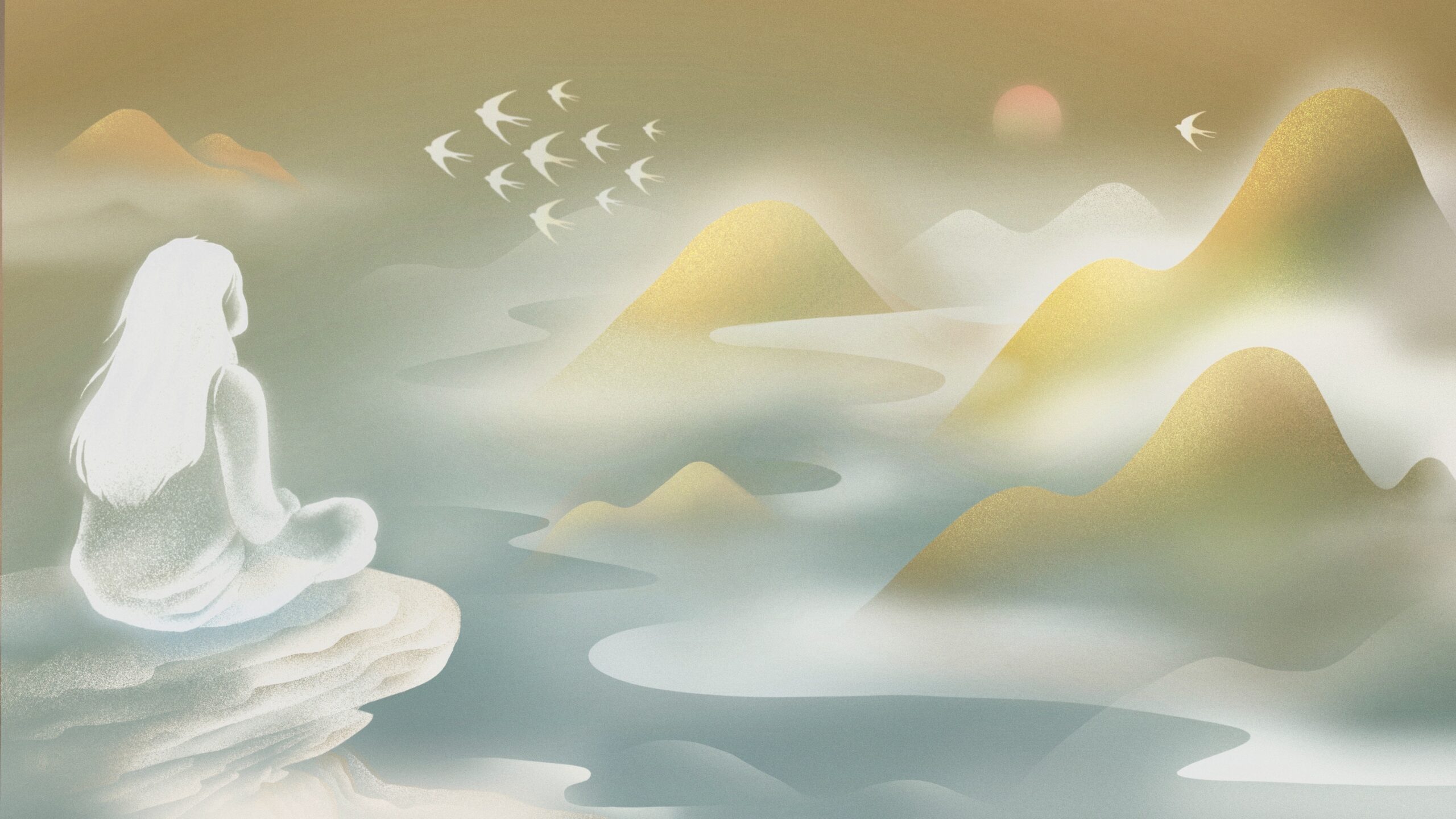
I’ve been searching for belonging my whole life.
At times, I find it in groups.
Mostly, with individuals.
I always expect it to feel better and brighter than it usually is.
Birthday parties are especially anxiety provoking — who should I invite this year? Will they all get along?
Sometimes, I search for belonging with a loud and raging ego… that never seems to work.
Other times, I wander into periods of silence and solitude and find it at the edges of myself.
This loneliness keeps me tender to the brokenness of the world.
I feel it most when I grasp for it least.
Joyful and formless.
A belonging that is always changing shape, because we always are.
There is no center.
We are a reluctant collection of fragments.
Yet in our fragmentation, whole.
It seems my life is a humble meditation on the vicissitudes of belonging.
What’s yours?
III. Pilgrimage
“Another world is not only possible, she is on her way. On a quiet day, I can hear her breathing.”
– Arundhati Roy –
 |
Three weeks into my pilgrimage, I collapsed into my own arms, crying in a rat-infested room in rural Northern California. Grasping, exhausted, lost. I embarked on this journey armed with an intense spreadsheet and tight timelines. My goal? To encounter communities re-imagining care, mutual aid, and neighborhood relationships.
Yet here I was, sprinting at these textured, relational questions, in dogged, individualistic pursuit. I was in conversation with these most delicate, human experiences in the language of project management. I was searching for community without experiencing it in my own life.
Staring out the window, I caught sight of a mature redwood tree, blowing playfully with the wind. She must have been a hundred years old. Elder Grace Lee Boggs moved through my heart: Dear One, move at the speed of relationships.
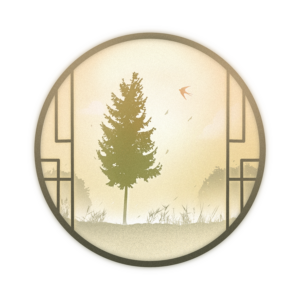 |
These times of high winds require us to travel at wise speeds and live with enough substance to keep us firmly grounded. As a worker bee in a generational cohort who feels there is no guarantee for the nectars of tomorrow, I am easily tempted by the voice of urgency, at the expense of rest, joy, and relationships.
Today, I am still on pilgrimage. But rather than barging down doors, this pilgrimage listens for gentle invitations. It takes on the spaciousness of decades. There aren’t as many sugar highs, but it is beginning to take on a quality of equanimity. Like the Buddha’s soft smile. Less science project. More artful uncovering.
Moving slowly, I am learning the larger lessons of community that I didn’t even realize I was seeking — that the answers can’t be found in the nebulous “out there”, that they begin to unfold in my own, small daily life. Patterns of resiliency are found across all relationships, including the ebbs and flows of my family, friendships, workplace, and neighborhood.
Moving at the speed of relationships has also opened me up to the practice of Sabbath. To learn bird language and take notice of the rhythms of the sun and the moon. To be in right relationship with the five elements of life — fire, earth, wood, metal, and water. To take pilgrimage in the company of other spiritual misfits and seekers across generations.
And to be in right relationship with my own heart — on a quiet day, I can hear her beating.
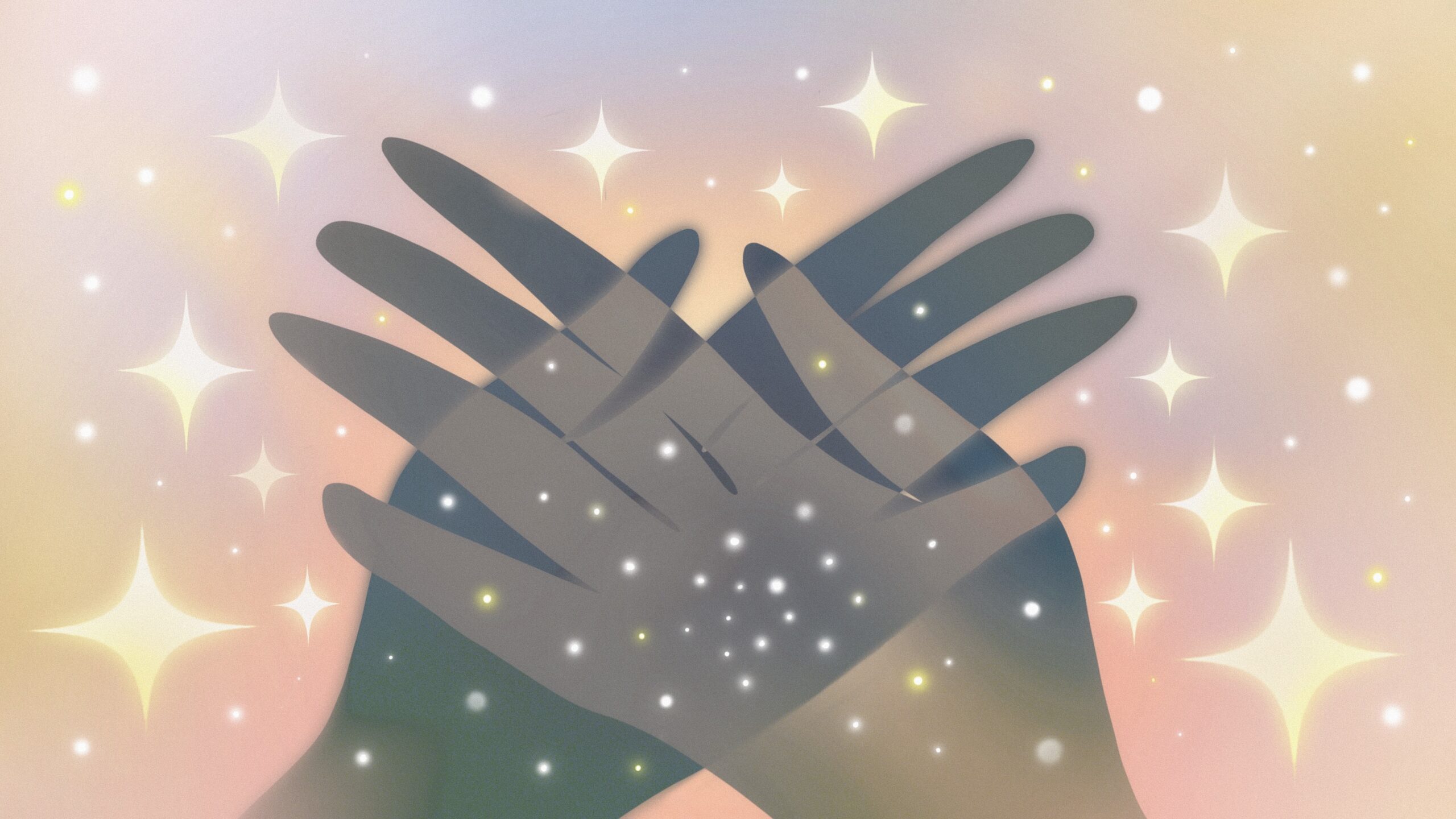
Reflect and Practice
At the end of part one in this essay, Serena offers what feels like a blessing:
“May we each find the strength to bring to light all that is darkened in our lineages. May the moonlight wash our ancestral clothing anew. May our questions of inheritance be healing for the ones who came before, as well as for those yet to come.”
What does the phrase “questions of inheritance” mean in the context of your own life?
Offer your responses and see those of others’ below:
Return to the main page of the Cogenerational Social Healing Collection, a collaboration between On Being and CoGenerate.
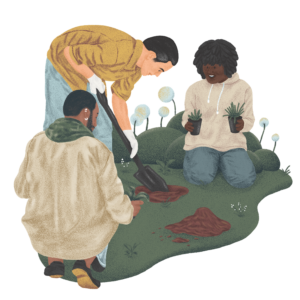 |
You can also explore crowd-sourced submissions, or share your own, in our Community Garden (best experienced on desktop or in the Miro mobile app). |
Illustration by Sisi Yu
Produced by On Being and CoGenerate
Search results for “”
View
- List View
- Standard View
- Grid View
Filters